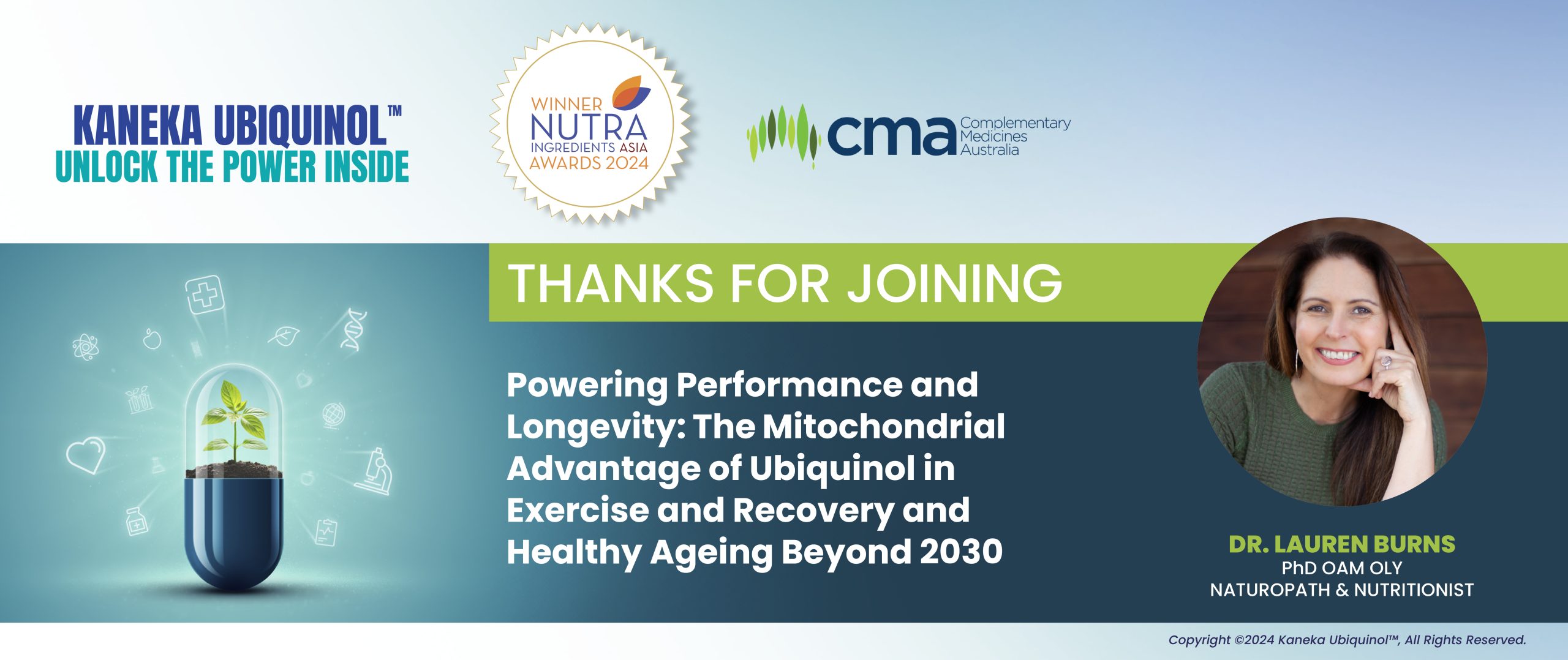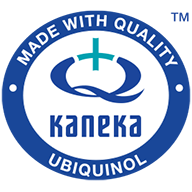
Why Ubiquinol Is The Natural Choice For Supporting Heart Health
Mar 2021Recent Article
How is Ubiquinol different from Ubiquinone?
Ubiquinol is the active and reduced form of coenzyme q10 (co-q10). It is an essential, fat-soluble anti-oxidant that has many health benefits including supporting cellular energy production, supporting cardiovascular health, and supporting sperm motility and morphology[1].
Ubiquinol may have superior bioavailability than conventional coq10- this means that Ubiquinol may be more easily absorbed by the body than coq10[2].
How Does Ubiquinol Support Our Cardiovascular Health?
Ubiquinol supports cardiovascular health in a variety of ways. The heart is one of the body’s major organs, and therefore it needs a lot of energy- just like the kidney, the brain and the liver. Ubiquinol, as the active form of coq10, supports our cellular energy production levels1. Ubiquinol supports the synthesis of ATP in the mitochondria of the cell, and supports the cells to provide organs like the heart with the energy it requires[3].
Ubiquinol, as an antioxidant, may also help to relieve the effects of free radicals and oxidative stress. Long-term oxidative stress may cause disruptions to cellular tissues[4]. Ubiquinol also helps support healthy levels of cholesterol in healthy adults1.
Is Ubiquinol Found Naturally In Our Bodies?
Ubiquinol is found naturally in our bodies[5]. However after age 30 the body’s natural levels of Ubiquinol production begin to decline5. Furthermore, long-term oxidative stress and physical over-exertion may also cause the body’s natural Ubiquinol production levels to slow down5.
What Can We Do About Naturally Depleting Levels Of Ubiquinol?
Ubiquinol is found in many foods, including oily fish, organ meats and whole grains[6]. However, it is difficult to achieve the daily recommended dose without consuming excessive amounts of these foods6.
If you rely on food sources only, you would need to consume more than 14kg of sardines or 60 avocados, for example, to reach 100mg of Ubiquinol.
Supplementing with Ubiquinol is also an option. If you are over the age of 30 and wish to start replenishing your natural levels of Ubiquinol, you may want to speak to your healthcare professional about taking Ubiquinol in supplement form.
Seek advice from a healthcare practitioner to determine if supplementation is right for you. Always read the label.
[1] Saini, R. (2011). Coenzyme Q10: The essential nutrient. J Pharm Bioallied Sci, 3(3), 466-467. < http://www.peirsoncenter.com/uploads/6/0/5/5/6055321/coenzyme_q10__the_essential_nutrient.pdf >
[2] Zhang, Y., Liu, J., Chen, X.Q. and Chen, C.Y.O., 2018. Ubiquinol is superior to ubiquinone to enhance Coenzyme Q10 status in older men. Food & function, 9(11), pp.5653-5659.
[3] Mendelsohn, B. A., Bennett, N. K., Darch, M. A., Yu, K., Nguyen, M. K., Pucciarelli, D., … & Nakamura, K. (2018). A high-throughput screen of real-time ATP levels in individual cells reveals mechanisms of energy failure. PLoS biology, 16(8), e2004624. < https://journals.plos.org/plosbiology/article?id=10.1371/journal.pbio.2004624 >
[4] Kuhn, M. A. (2003). Oxygen Free Radicals and Antioxidants: An overview of how antioxidants protect the body from disease. AJN The American Journal of Nursing, 103(4), 58-62. < https://journals.lww.com/ajnonline/ >
[5] Alf, D., Schmidt, M.E. and Siebrecht, S.C., 2013. Ubiquinol supplementation enhances peak power production in trained athletes: a double-blind, placebo controlled study. Journal of the International Society of Sports Nutrition, 10(1), pp.1-8.
[6] Kubo, H., Fujii, K., Kawabe, T., Matsumoto, S., Kishida, H. and Hosoe, K., 2008. Food content of ubiquinol-10 and ubiquinone-10 in the Japanese diet. Journal of Food Composition and Analysis, 21(3), pp.199-210.
You can share this by:
Keep up-to-date with Ubiquinol News
Ubiquinol Headlines

Retail Pharmacy: Healthy Ageing in the Spotlight
Apr 2025Category: Ageing, Antioxidants, APP, Conference, Conferences, Endurance, Health, Health Industry, healthy ageing, Immunity, In The News, Mitochondrial health, Nutrition, Online, Stress, Ubiquinol, Vitamins, wellnessRead More
Retail Pharmacy: The Impact of Loneliness on Heart Health
Apr 2025Category: cardiovascular health, dr ross walker, Heart, In The News, Mitochondrial health, Online, UbiquinolRead More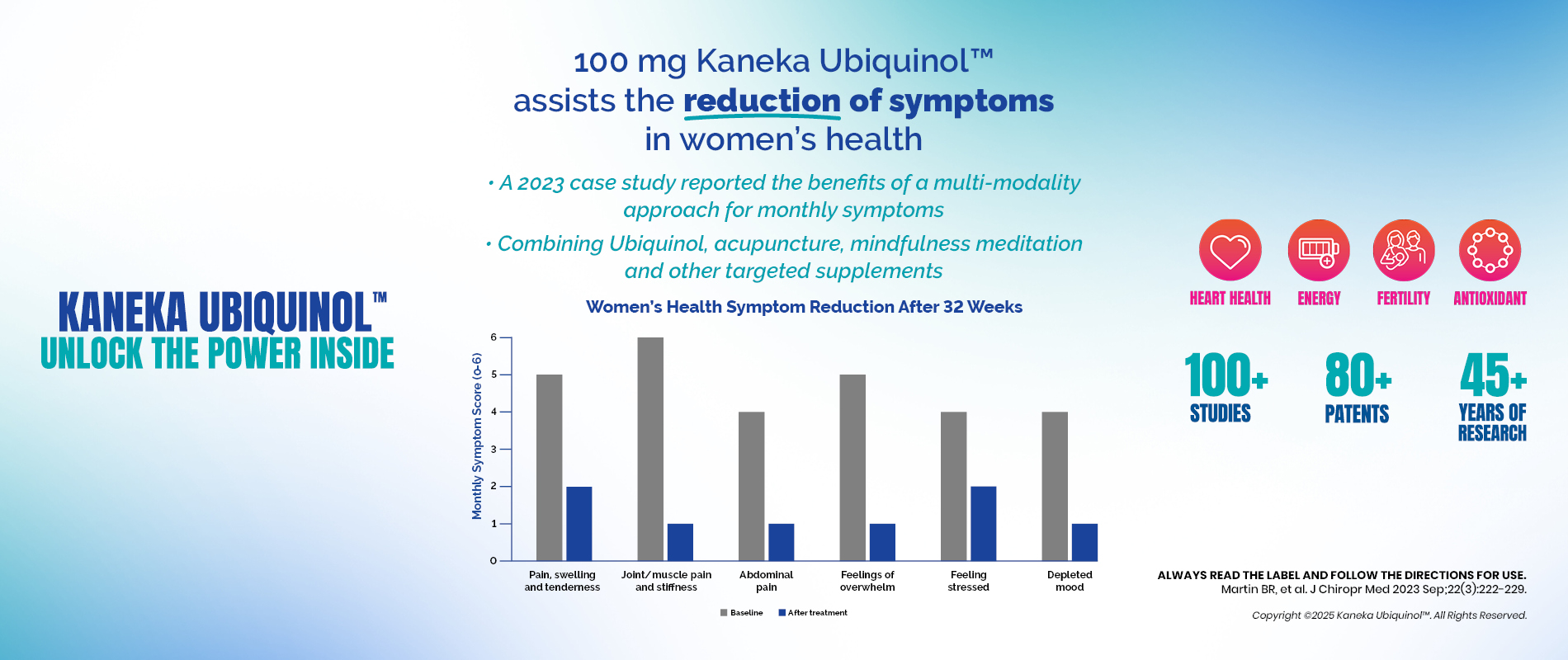
Ubiquinol for Women’s Health
Apr 2025Category: Ageing, Antioxidants, Fertility, Kaneka, Mitochondrial health, Ubiquinol, wellness, Women's HealthRead More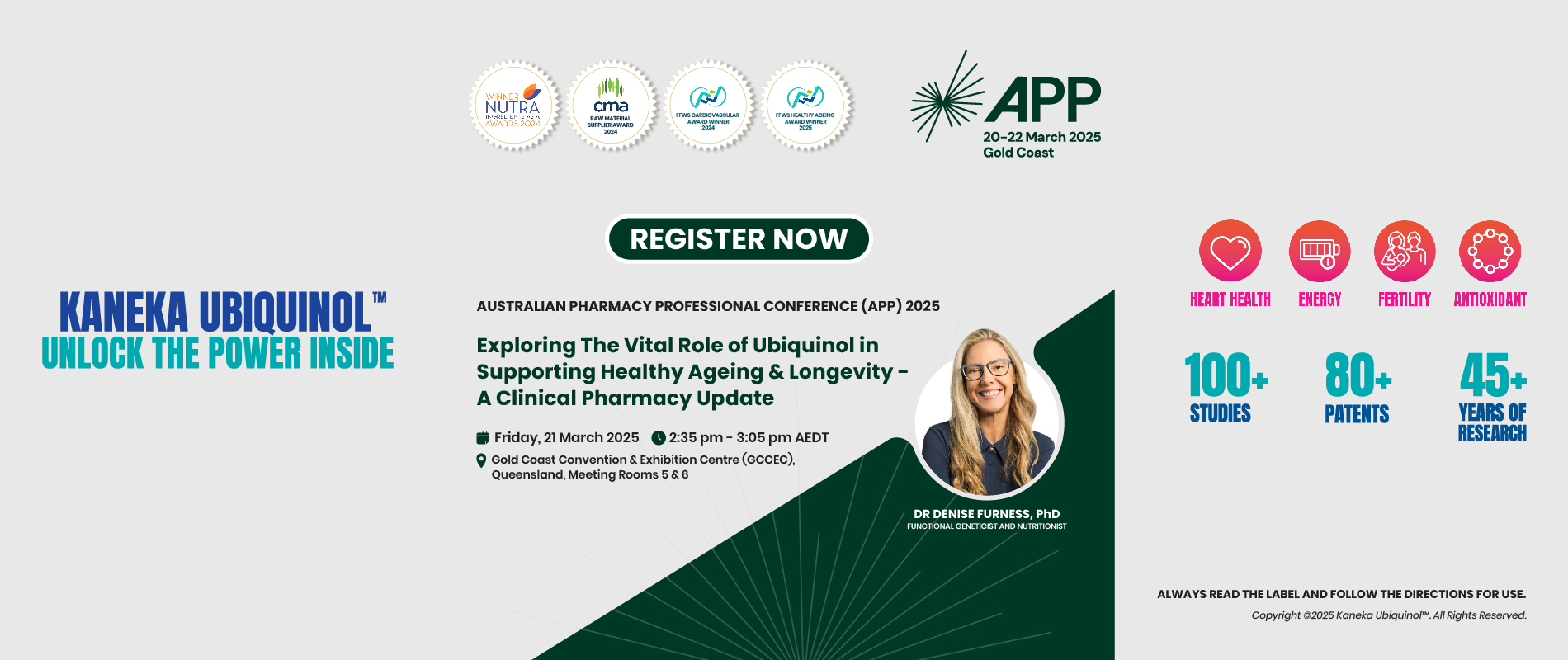
Kaneka Ubiquinol™ at APP 2025: Advancing Healthy Ageing & Longevity
Mar 2025Category: Ageing, Antioxidants, APP, Conference, Conferences, Energy, Fatigue, Health, Health Industry, healthy ageing, Kaneka, Mitochondrial health, Nutrition, UbiquinolRead More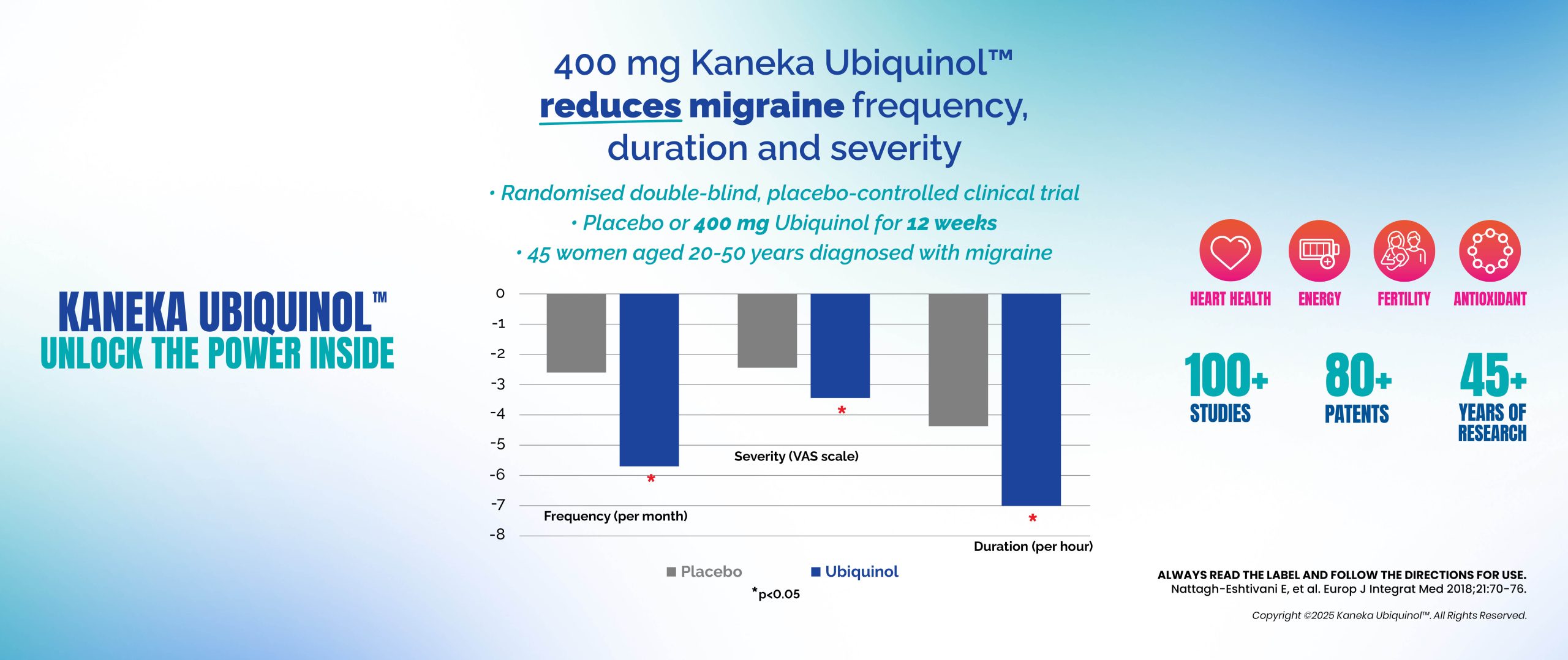
Ubiquinol: Supporting Migraine Relief Through Cellular Energy
Jan 2025Category: Antioxidants, complementary medicine, Energy, Fatigue, Health, Health Industry, healthy ageing, Kaneka, Mitochondrial health, Nutrition, Stress, Ubiquinol, Vitamins, wellnessRead More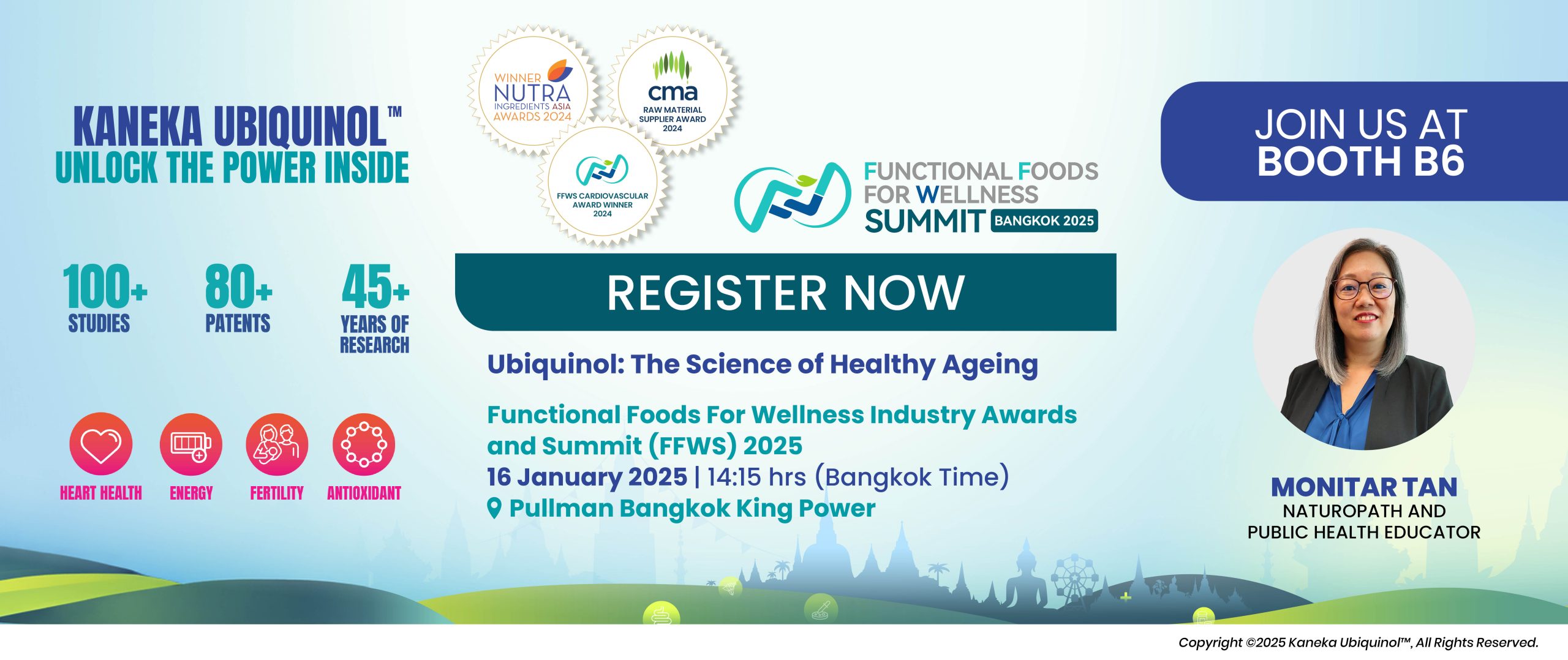
Kaneka Ubiquinol™ at Functional Foods for Wellness Industry Awards and Summit, #FFWS2025
Jan 2025Category: Ageing, Antioxidants, Awards, cardiovascular health, Conference, Conferences, Energy, Fatigue, FFWS2025, Health, Health Industry, healthy ageing, Kaneka, Menopause, Mitochondrial health, Nutrition, Ubiquinol, VitaminsRead More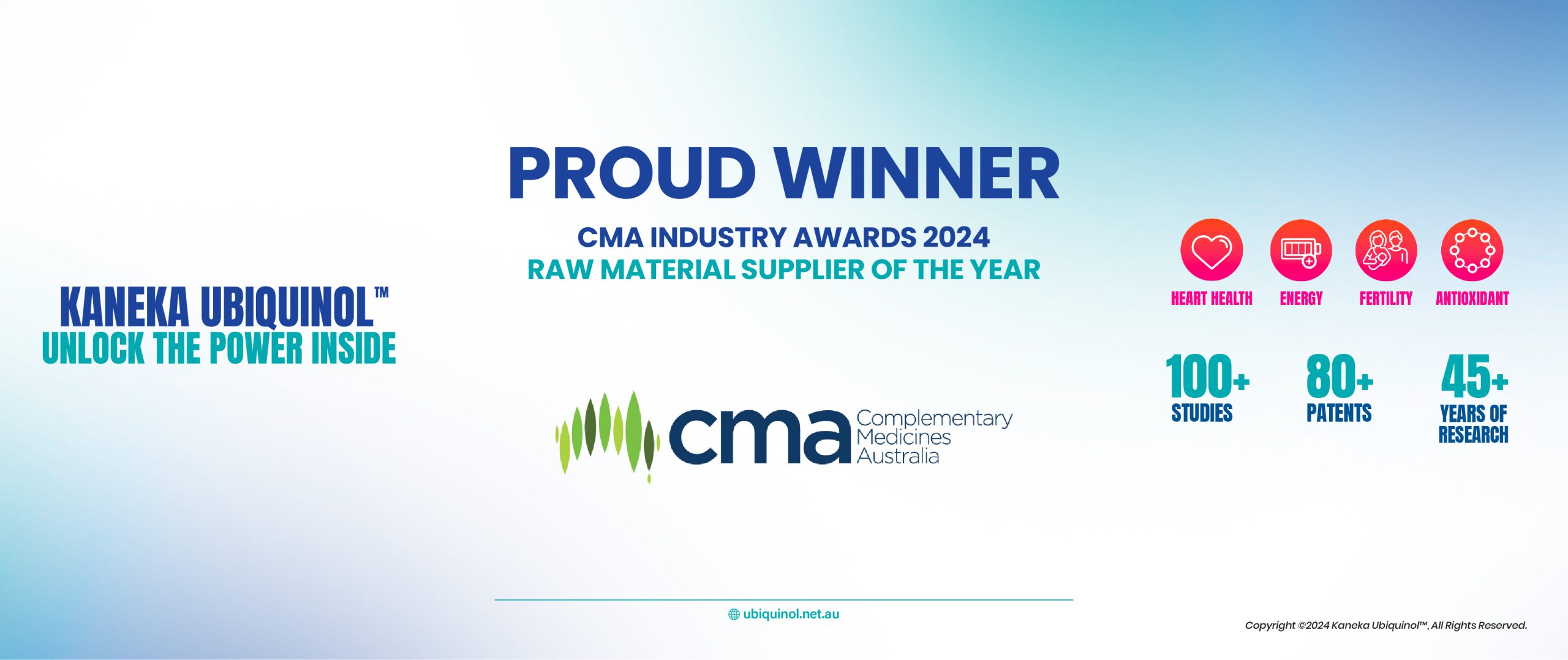
Kaneka Ubiquinol Wins Prestigious Complementary Medicines Raw Material Supplier of the Year Award 2024
Dec 2024Category: Ageing, Awards, cardiovascular health, complementary medicine, Conference, Conferences, Endurance, Energy, Fatigue, Fertility, Fitness, Health, Health Industry, healthy ageing, Heart, Immunity, In The News, Kaneka, Lungs, Memory, Mitochondrial health, Nutrition, Online, Stress, Ubiquinol, Vitamins, wellnessRead More